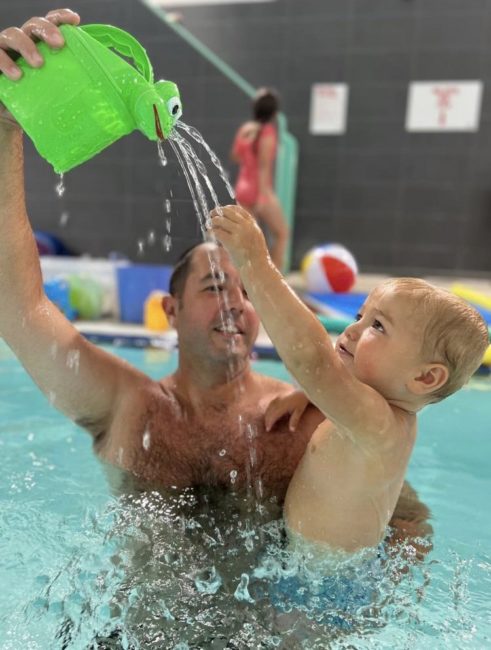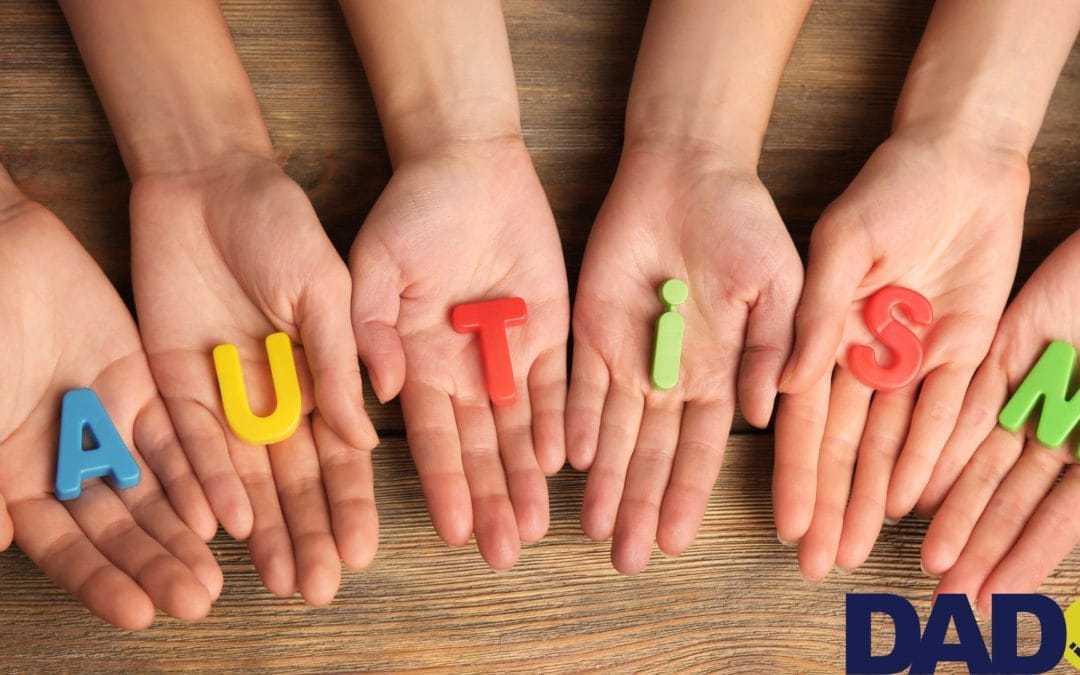
I’ll put my hand up here and be honest: I completely dropped the ball on swimming. My son is 12 and still can’t swim. I know, I know. But, hear me out. I couldn’t get my head around swimming with a baby. I used to think ‘where do I put him while drying myself?’, and ‘what if we are both soaking wet and freezing and he has a poopy nappy?’. The idea of it was all too grim to bear.
Then he became a toddler- a difficult toddler who was forever ill with chest infections. The thought of taking him swimming in germ soup (or at least that’s what it was in my mind) and coming home with even more illnesses put me off.
Then began the lessons with the school, which he didn’t progress in at all. And then Covid hit, shutting swimming pools and postponing us chucking ourselves into the germ soup for a good while.
So here we are. He is now 12, just started secondary school, and can’t do much more then tread water. It feels like everybody else’s kids can throw themselves off the 20 foot high diving boards with wild aplomb while mine flounders around with a float. With all this in mind I was interested to speak to Dave Blake, swim teacher for over 20 years, and father of 4, about the benefits of swimming with your kids.
Why should I take my kids swimming?
I asked Dave why I should be keen to wrangle with chilly water, small kids and slippery floors. ‘At the end of the day children developing life skills overshadows any stress in the changing room,’ he said. ‘There’s not many activities you can do in a family with kids of varying ages where everyone is happy. The easiest thing to do is to go swimming.’
Dave also suggests that swimming can be a great social activity. ‘You can use the other facilities on site, maybe have a coffee or use the soft play too. Taking kids swimming is probably not as bad as you think its going to be. Plus, going as a group or family would give you more support with the kids.’
Recent research from Swim England has also highlighted the benefits of swimming: 9 in 10 parents say that swimming has helped to develop their child’s coordination skills. Three quarters of parents also report that swimming helps their child sleep better (always a bonus). Furthermore, 76% of dads say that swimming is the best time they spend with their child.
The changing room issue
I asked for Dave’s expert advice on how to not end up running after a wild toddler with your pants around your ankles.
‘A lot of people get stressed out with the changing room issue,’ he says. ‘There’s ways around it. if you, for example, give them a drink and a snack while you’re getting changed it keeps them busy. it also helps to prep and know what the facilities are. Visit the facilities beforehand. In some changing rooms you might only have a baby roll-out tray, but in others you will have ones that you can strap kids in to.’
Taking little ones swimming
Dave advises that the younger you get children used to the water, the better. ‘If you can build confidence at an early stage in the water it’s much easier than starting learning later with someone who is petrified,’ he says. ‘Once the fear isn’t there they are ready to learn. It can take 6-8 weeks just to break down those barriers.’
With babies Dave recommends moving them around in the water so they get used to how it feels. He also suggests putting babies in arm bands as soon as they are able to hold their head up. ‘My biggest tip would be make them independent as early as you can’, he says, ‘but its also about splashing, jumping in, and getting water on the face.’
Plus the watery fun needn’t stop at the pool; little ones can also enjoy it in their own bathtubs. Dripping water on a baby’s head from a sponge or flannel can get them used to having water on their face and not being afraid.
Lessons and tuition
Dave recommends starting lessons from as early as possible. Many pools offer lessons from toddler age in a group setting. It’s also beneficial for kids to go swimming for fun between lessons with their parents, to try out the skills they’ve learnt and enjoy themselves. Visiting different pools is also a good idea, as some will offer varying experiences, such as slides or wave machines.
‘Children gain confidence- they gain it with each individual skill,’ says Dave. ‘If the kids feel safe in the water they’ll try anything. When they’ve got that life skill you don’t have to be petrified about anyone in the water.’
For teaching older children to swim, Dave advises private tuition 1-1 if it’s affordable. ‘It’s worth it as the cost will be the same as group sessions but just over a much shorter amount of time,’ he says.
As for when children should give up swimming, Dave points out that if kids are enjoying it, it’s a great form of exercise to continue throughout life.
So have I changed my mind about swimming?
Let’s put it this way: I still hate wet hair and cold damp towels but I have just spent 25 minutes ringing around looking for swimming lessons for my 12 year old. I can see there are good reasons for overlooking the hassle and the manky old plasters on the changing room floor. Wish me luck!
For more tips to support your child to learn to swim – click here.







